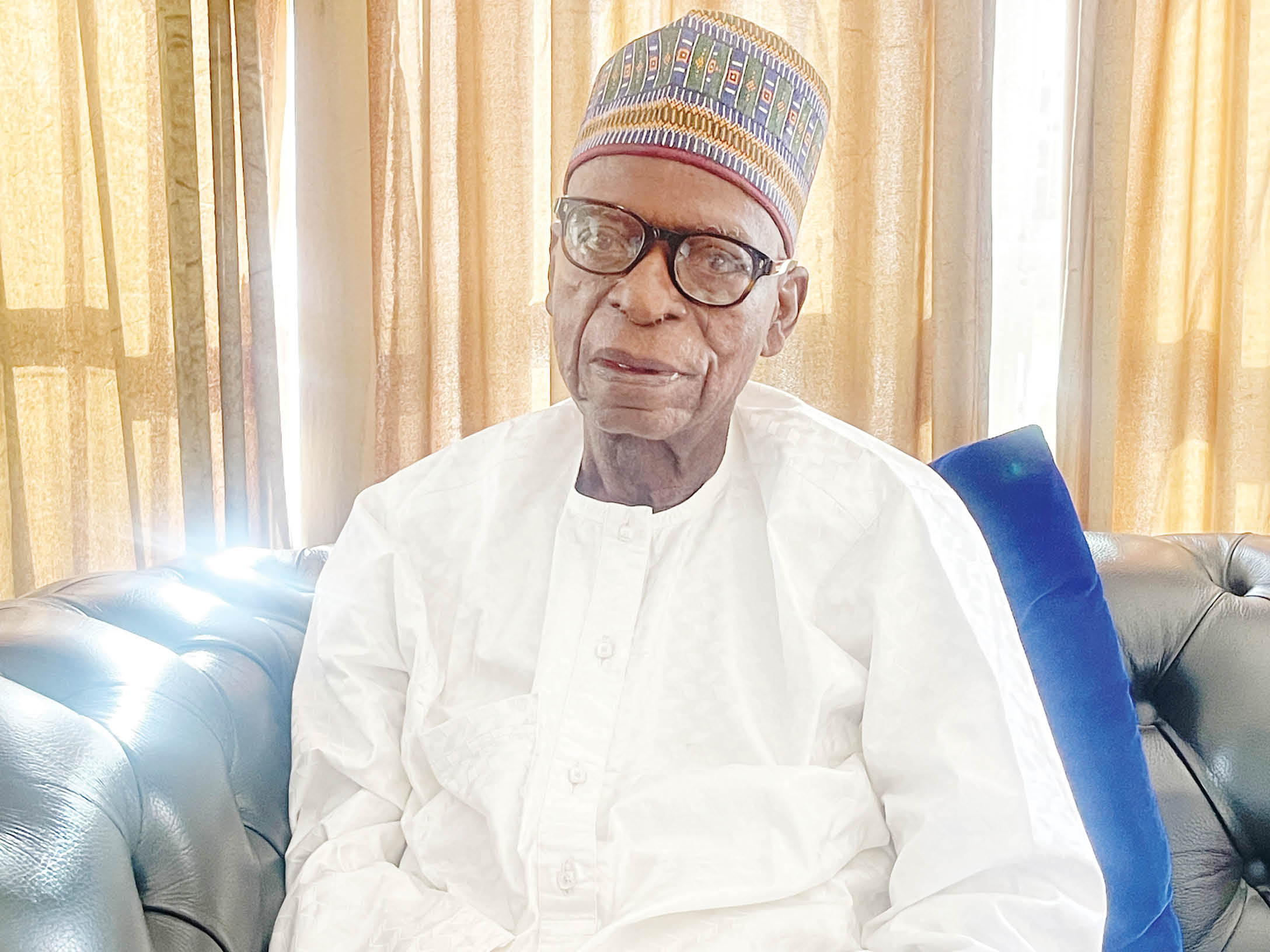Former ambassador of Nigeria to Switzerland, Yahaya Kwande, witnessed the events that led to the civil war and those that took place after. He shares his thoughts on the continuous bitterness among various groups in the country, 57 years after the war.
Why is it that a lot of people from your generation, who witnessed the civil war, shy away from discussing it?
If you are to talk about it, the forgiveness will be very…it will open up wounds.
But wouldn’t you say the failure to discuss it is why we appear not to have truly healed or learned from our past mistakes?
No. But the more you talk about it, the more you blame one another. The Oputa Panel was set up to do what you are talking about. But it opened more wounds at that time. It will die one day, but at the moment, you are seeing somebody who killed your father still alive, walking on the street. How can you forget?
Is that why we still have agitations for secession in parts of the country?
We are divided because some of the policies of government that were intended to heal the wounds are creating more divisions. For example, this Federal Character was meant to be temporary, because at that particular time, it wasn’t thought of to divide Nigerians, but to unite them. But when former president Muhammadu Buhari was in power, some southerners accused him of dichotomy and selfishness in employment. Now, it’s the same with Tinubu, people are calling it Yorubanisation and it is still dividing us.
- Why agitations for secession continue 54 years after civil war
- Nigeria’s dilemma: Balancing economic needs and cultural values in the Samoa Agreement
Are you saying the division is due to the selfish interests of politicians?
More than anything else. I told you, the policy that was put down to unite us, is the one now dividing us. Federal character, northernisation or westernisation and easternisation policies are being played to date. And the economy is making it worse.
What is your view on the calls for separation?
No, no, no. I don’t like this. Well, I must tell you also, your question provoked an answer. I was one of the 19 wise men appointed to organise the agenda for the constitutional review under General Sani Abacha. We spent 18 months preparing. And in the agenda that we were preparing for the main body to debate on, we were afraid to put the question of united Nigeria at the beginning. We thought that with the way people were abusing one another, probably our committee would not last, because we would exchange blows and disappear. So, we put the indivisible country at the end. Then, I remember that when they selected people, Chief Odumegwu Ojukwu was one of those that were discussing in the main body. We prepared the agenda. When they got into a room, they selected, or elected Shehu Yar’adua as the chairman of the revenue sharing committee because the place was going to go into pieces if the matter was not resolved. When they went in, he locked the door and threw the key out the window. He said we would not leave here. ‘We can’t allow Nigeria to just break, we must agree on something’. That’s when they agreed on that 13 per cent derivation.
And in our own committee too, I’m not exaggerating, I don’t think we spent half an hour discussing the indivisibility of Nigeria. Everybody seemed to agree.
But when you see individual tribes talking outside, you won’t believe that they were the people that were there. Everybody wants Nigeria to remain one.
But there are agitations for separation, especially from the South-east. It still hasn’t died down…
No, it hasn’t died down. But the Biafra they went to war for is no more. The Deltans will not agree, Rivers will not. Even during the war, they abandoned their properties and we collected their money and kept it for them. After a while, they came back, took their money and their property. I was here when we settled some of them. Even in the heat of the war, we gave them cover for safety. But at the moment, the ordinary Igbo trader is not happy with those asking for separation. Look at Jos, if you look at any sky rising building in the town, it’s owned by an Igbo.
Lately, there’s been talks about Nigeria’s system of government and some people are pushing for parliamentary system. What is your opinion on this?
I don’t agree with it. I would like a proper federation. The worst of it is a confederation, but not a unitary government. Because the diversity of geographical division, tribal division, religion division is not yet to the level that we can thrust ourselves into a particular group. So, the worst is to look for confederation because I saw the benefit of confederation in Switzerland, when I was there. To a certain extent, they used to have three ministers. Three ministers rotate the presidency annually. You could be the minister of education or minister of works. Then they move you to the centre, you become president of the confederation of Switzerland, to receive diplomats, because there are three tribes in Switzerland; Italian, French and German. Nobody is fighting life and death to be president, because you will only be there for one year.
Do you think the next two, three generations will take these things more seriously?
That’s what I think. I believe we will reach a stage that there will be a revolution. People like us are in danger. The innocent ones, the guilty ones, these younger ones, believe me, will just come and wipe us out one day. We should be careful. That’s why those building mansions and displaying it should be careful. Once, I was coming from Abuja to my village, Kwande in Plateau, and I passed through Lafia, where I saw a queue of women with babies on their backs, riding bicycles with hoes and cutlasses. I couldn’t differentiate who was a dark-skinned person or light-skinned because of the charcoal and the dust. I was in the car, passing and I thought, one day, these hoes and cutlasses will be used on us. The only thing such a person will need from you is subsidised fertilizer, but a minister or a director in that office will take all the N300 and get it sold to people at N600, so that he will make another N300. These sticks that they are hanging on their necks will be our end. It’s coming.
What do you think Nigerians need to do to ensure the experiences of 1966 to 1970 never happen again?
We should respect one another as human beings. The fundamental human rights should be practiced. Because somebody stealing pensioners money is not a human being. Such people do not deserve to live. There is a government, but the government is nothing. Adalci in our language means give right to the right and give wrong to the wrong, even if it is your blood. But we don’t.

 Join Daily Trust WhatsApp Community For Quick Access To News and Happenings Around You.
Join Daily Trust WhatsApp Community For Quick Access To News and Happenings Around You.

